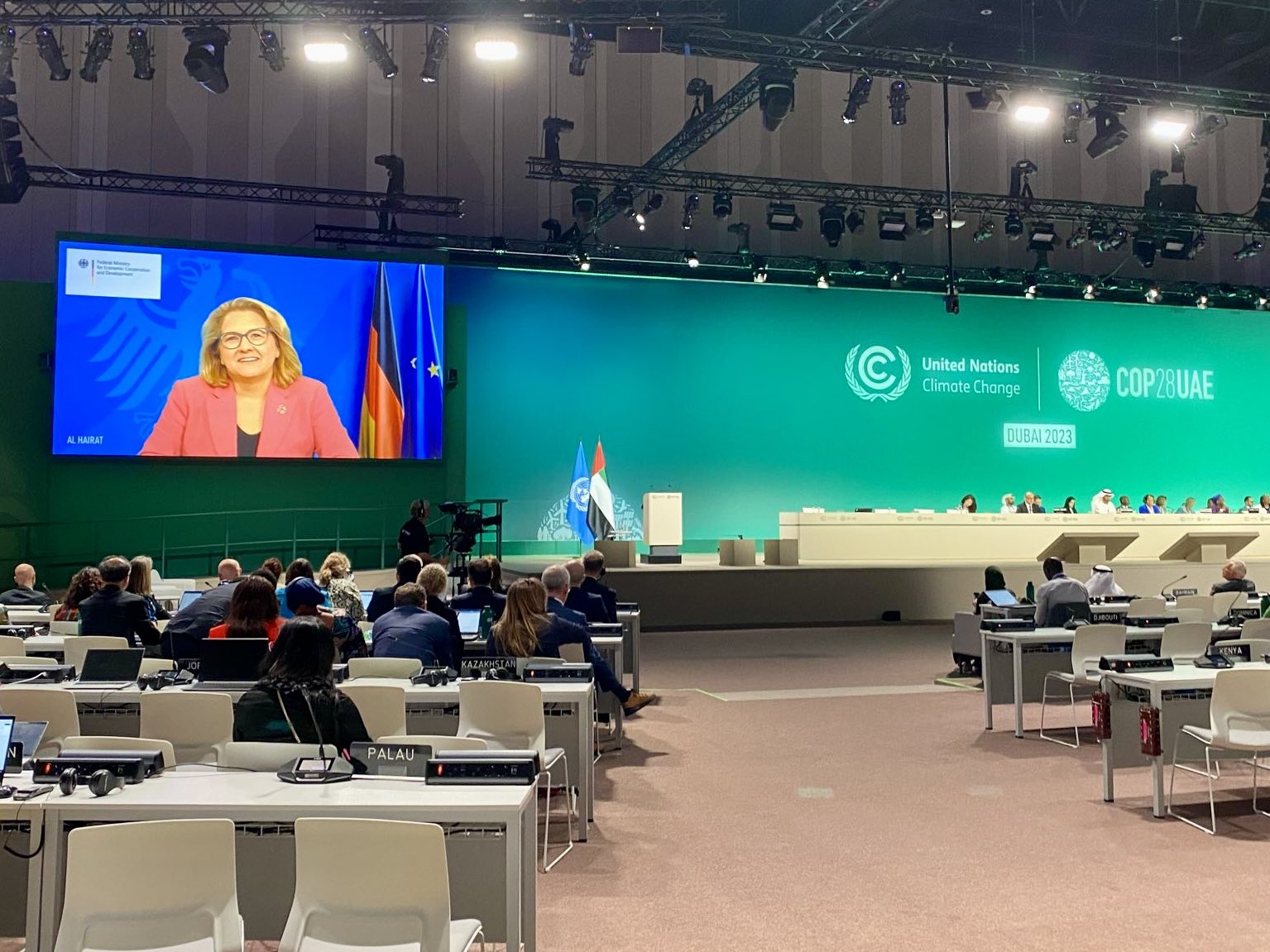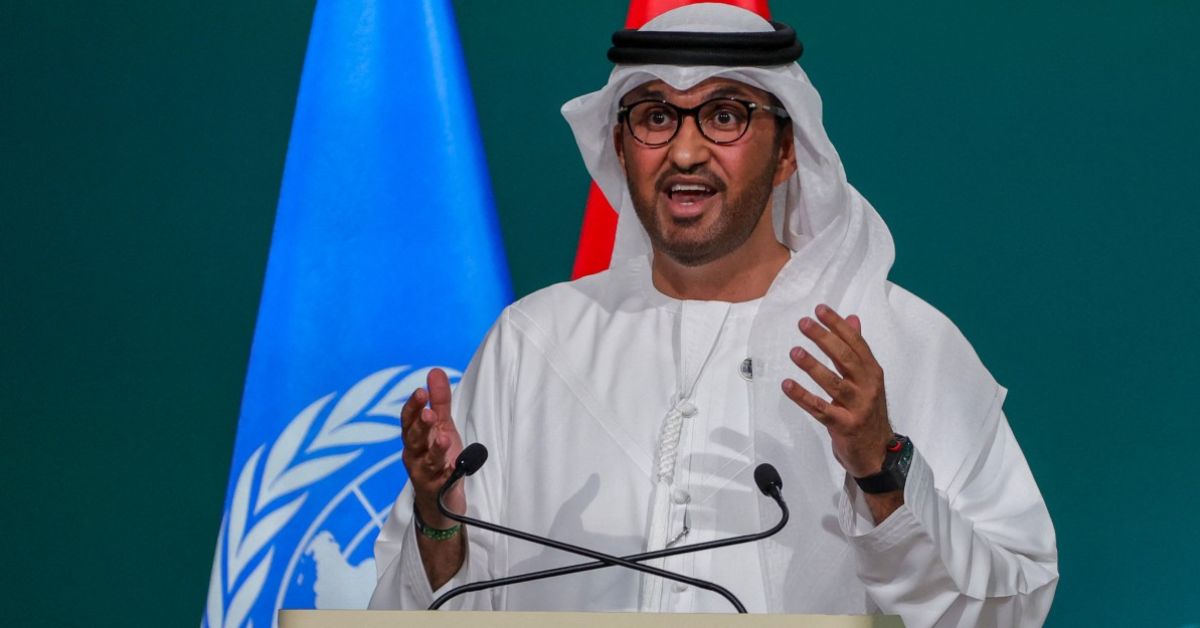DUBAI, UAE — The first day of the talks on Thursday saw the launch of a landmark “loss and damage” fund to help vulnerable countries cope with the increasingly costly and damaging impacts of climate disasters.
The UAE and Germany pledged $100 million each, France $109 million, $50 million from Britain, $25 million from Denmark and $17.5 million from the United States, the world’s biggest historical polluter. Campaigners said the US offering was woefully inadequate.
The total committed as of Saturday was some $656 million, according to a tally by the Natural Resources Defense Council, an environmental advocacy group.
That falls vastly short of the $100 billion a year that developing nations — which have historically been least responsible for greenhouse gas emissions — have said are needed to cover losses from natural disasters.
On Thursday, COP28 President Sultan Al Jaber of the UAE had announced the country’s pledge, highlighting the fund’s importance in aiding vulnerable communities and bolstering global resilience against climate change. “We have delivered history today,” Al Jaber stated, emphasizing the UAE’s commitment to this global cause.
Germany’s matching pledge, along with the UAE’s, sets a new precedent for wealthy nations to actively support those most affected by climate change. This move follows years of reluctance by affluent countries to establish such a fund, a stance that changed with a landmark agreement at COP27 in Sharm el-Sheikh.
The fund, to be temporarily managed by the World Bank, was launched on the first day of COP28 after intense negotiations. “This sends a positive signal of momentum to the world and to our work,” Jaber commented, praising the swift and united decision-making shown on the conference’s opening day.
At A Glance * Historic Launch of Climate Fund at COP28: The United Nations Climate Change Conference in Dubai inaugurates a significant "loss and damage" fund. * Major Contributions from UAE and Germany: Both countries commit $100 million each, collectively contributing $200 million to support communities affected by climate change. * UAE's Leadership Role Highlighted: COP28 President Sultan Al Jaber announces UAE's commitment, emphasizing the historic nature of the initiative. * Germany Matches UAE's Pledge: Germany's contribution sets a precedent for wealthy nations to support those facing the brunt of climate change. * Shift in Wealthy Nations' Stance: The commitment follows years of hesitation by affluent countries, changing post the COP27 summit agreement. * Fund Managed by World Bank: The fund's structure and operation, to be temporarily overseen by the World Bank, were decided after intense negotiations. * Global Solidarity and Swift Action: The fund's adoption on the first day of COP28 showcases unprecedented speed and unity in decision-making. * Calls for Increased Funding: Despite the initial pledges, experts and vulnerable nations argue that significantly more funds are needed for effective climate justice. * Concerns Over Fund Adequacy: Developing nations emphasize the need for a fund size in the billions to address the impacts of climate change adequately. * Voluntary Contributions and Global Participation: Developed countries advocate for voluntary contributions and expect wealthier emerging nations to contribute. * Ongoing Challenges in Climate Finance: The fund's establishment marks progress, but consensus on climate finance and its adequacy remains a challenge.
Jennifer Morgan, State Secretary and Special Envoy for International Climate Action at the Federal Foreign Office of Germany, expressed pride in the collaborative effort. “Outstanding that all parties have come together in an expression of solidarity to adopt the new Loss and Damage Fund at the opening of #COP28. Proud that Germany 🇩🇪 & UAE 🇦🇪 could together provide the $100 million each to start capitalizing the fund. Hopefully more pledges to follow!” she posted on X.
The establishment of the Loss and Damage fund at COP28 is a pivotal moment in climate diplomacy, reflecting a growing recognition of the need for tangible support for those most vulnerable to climate change. This initiative marks a new era of responsibility and cooperation among nations, setting a hopeful tone for the remainder of the conference.
However, the pledges made so far fall short of the $100 billion that developing nations, historically least responsible for greenhouse gas emissions, have said are needed to cover losses from natural disasters. “The progress we’ve made in establishing a loss and damage fund is hugely significant for climate justice, but an empty fund can’t help our people,” said Madeleine Diouf Sarr, chair of the Group of the 46 Least Developed Countries.
The Alliance of Small Island States emphasized that “the work is far from over” and stressed the need for adequate financing to alleviate the burden of vulnerable communities. “Success starts when the international community can properly support the victims of this climate crisis, with efficient, direct access to the finance they urgently need,” the group added.

Rachel Cleetus, policy director of the climate and energy program at the Union of Concerned Scientists, called for financial commitments “in the billions, not millions”. “Millions would be an insult given what’s happening already around the world,” Cleetus stated, advocating for a conversation about billions and a plan to scale up the fund by 2030.
The fund will be housed in the World Bank for four years, a decision accepted by developing nations despite concerns about the institution’s Western-dominated structure. Its board members, representing both wealthy and developing nations, will play a crucial role in establishing its credibility.
Developed countries, particularly the US, have insisted on voluntary contributions and expect wealthier emerging powers like China and Saudi Arabia to contribute. US climate envoy John Kerry stated that the US government would work with Congress to provide its $17.5 million pledge and expects the fund to draw from a variety of sources.
Richard Sherman, the South African co-chair of the committee overseeing negotiations, acknowledged that “the outcome might not be satisfactory to all people,” indicating ongoing challenges in achieving consensus on climate finance.








